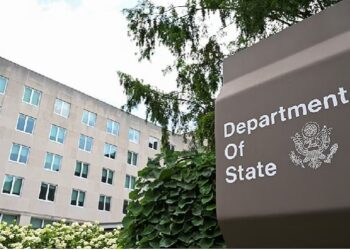Select Language:
Americans Divided on Federal Mass Cuts
In the whirlwind of political changes ushered in by the Trump administration, public sentiment surrounding federal funding cuts has become a contentious issue. A recent survey conducted by YouGov and the Economist showcased that Americans hold sharply divided opinions on which federal departments and agencies warrant reductions or elimination.
Overview of Federal Cuts Announced by the Trump Administration
Upon taking office, President Trump quickly set his agenda in motion, including significant changes in foreign and domestic policies. In the first month of his presidency, he enacted a 90-day freeze on all U.S. foreign assistance, including programs conducted by the United States Agency for International Development (USAID). This decision has profound implications both domestically and internationally, as millions rely on this aid for health and welfare programs.
Public Sentiment on USAID Cuts
The survey highlighted a stark divide between Republican and Democratic views on USAID. A staggering 60% of Republicans support cuts to USAID, while only 10% of Democrats agree. This sharp contrast underscores how party affiliation influences perceptions of federal assistance and its utility. For many Republican respondents, reducing the budget for foreign aid aligns with a broader “America First” philosophy, which prioritizes domestic spending and alleviates concerns about aiding other nations.
Department of Defense: A Rare Consensus
While opinions are divided regarding many agencies, there’s a notable consensus regarding the importance of the Department of Defense (DoD). The survey found that respondents across the political spectrum generally agreed that funding for the DoD should remain intact. This common ground might stem from a broader acknowledgment of national security concerns, which often transcends partisan divides.
The Controversy Over Department of Government Efficiency (DOGE)
Amidst the ongoing debates, the Department of Government Efficiency (DOGE), led by Elon Musk, emerged as a point of contention. Democrats show a higher level of concern regarding this department and its initiatives compared to Republicans. The disapproval likely arises from the perception that DOGE could further diminish public sector roles and responsibilities—a critical point for many progressives who argue for a robust and effective government.
Implications of Funding Cuts on Global Health Programs
The implications of the funding cuts are particularly dire for global health initiatives. USAID has funded programs worldwide that combat AIDS, malaria, and maternal mortality, among other critical health issues. The freeze threatens to cut off vital resources, impacting millions of vulnerable individuals in over 50 countries. Critics of the cuts argue that aligning spending solely with domestic interests neglects the global responsibilities that the U.S. holds in areas such as public health and humanitarian aid.
Strategic Merging of Agencies
In addition to the funding freeze, the Trump administration’s plan to merge USAID with the U.S. Department of State has raised concerns about the future of foreign assistance. Many worry that this merger may dilute the effectiveness and focus of programs designed to address urgent global challenges. The administration’s rationale centers on a more streamlined approach to foreign assistance, but the potential consequences could reverberate through various health and aid programs currently operational in many developing nations.
Conclusion
The ongoing debate surrounding federal cuts, particularly concerning USAID and other departments, reflects broader ideological battles within American politics. As public opinions show a clear divide, the ramifications of these cuts may pose significant challenges not only for domestic welfare but also for international health and aid initiatives. The tension between reducing government spending and maintaining a commitment to global health and security will continue to shape the political landscape in the coming months.







